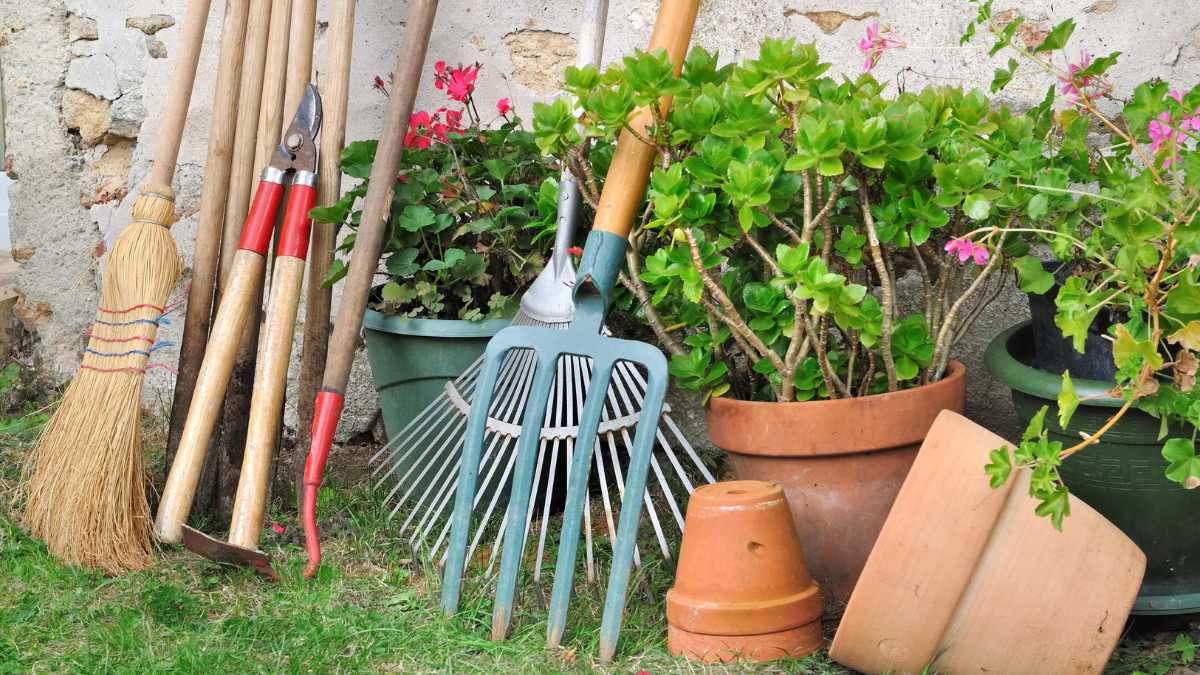As we age, it’s important to stay active and engaged in physical activities, and gardening is a great way to do just that. However, for seniors, gardening can be a challenging task due to mobility and strength issues. Fortunately, there are many gardening tools available that can make the job easier and more enjoyable.
In this article, we will explore the best gardening tools for seniors. We have researched the market thoroughly and gathered our top recommendations for the best gardening tools, devices, and garden gear that will help with a variety of gardening tasks, such as digging, pruning, weeding, watering, harvesting, and maintaining your garden and small backyard. Whether you’re a seasoned gardener or just starting, we have something for everyone. So, let’s get started and discover the tools that can help make your gardening experience more enjoyable and less strenuous.
Understanding the Need for Gardening Tools for the Elderly
As we age, our bodies change, and we may not be able to perform certain tasks as easily as we once could. Gardening is a great activity that can be enjoyed by people of all ages, but it can be especially challenging for elderly gardeners. That’s where gardening tools for the elderly come in.
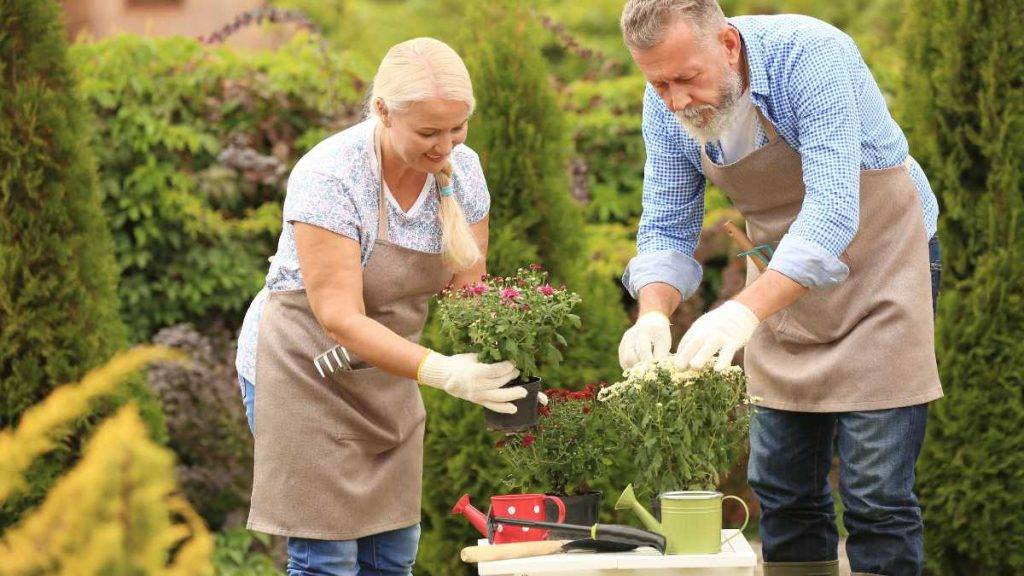
We understand that elderly gardeners may have difficulty with tasks such as bending over, kneeling, and gripping tools. Gardening tools for the elderly are designed to make gardening easier and more comfortable for seniors. These tools can help reduce physical stress, minimize the risk of injury, and make gardening more enjoyable.
Some common challenges that elderly gardeners face include:
- Reduced mobility: Elderly gardeners may have difficulty bending over, kneeling, or standing for long periods of time. Gardening tools for the elderly can help reduce the need to bend over or kneel, making it easier to garden for longer periods of time.
- Reduced grip strength: Elderly gardeners may have weaker grip strength, making it difficult to hold onto tools. Gardening tools for the elderly are designed to be lightweight and easy to grip, reducing the strain on the hands and wrists.
- Reduced vision: Elderly gardeners may have difficulty seeing small details or reading labels on plants. Gardening tools for the elderly often feature large, easy-to-read labels and markings to make gardening more accessible.
- Reduced dexterity: Elderly gardeners may have difficulty with tasks that require fine motor skills, such as planting seeds or pruning plants. Gardening tools for the elderly are designed to be easy to use, with larger handles and simplified mechanisms.
Overall, gardening is a great way for elderly gardeners to stay active, enjoy the outdoors, and maintain their independence. With the right gardening tools for the elderly, gardening can be a safe and enjoyable activity for seniors of all ages and abilities.
Essential Gardening Tools for Seniors
As seniors age, gardening can become more challenging, but with the right tools, it can still be an enjoyable and rewarding activity. Here are some essential gardening tools for seniors that can make gardening easier and more comfortable.
Hand Tools
Hand tools are an essential part of any gardener’s toolkit, and for seniors, they can be especially helpful. Look for tools with comfortable, ergonomic handles that are easy to grip and won’t put too much strain on your hands. Some of the best hand tools for seniors include:
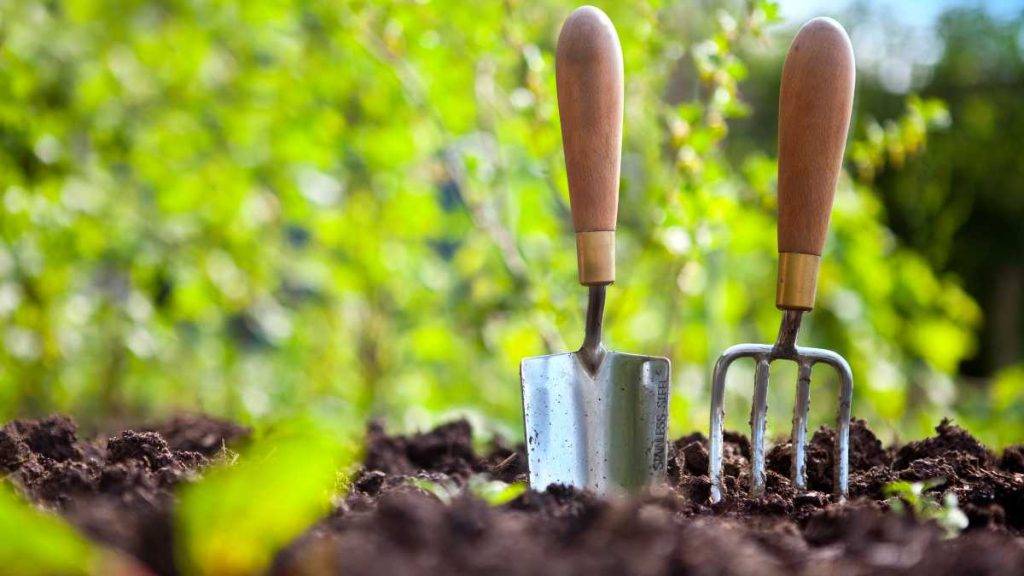
- Trowel: A trowel is a small, handheld tool that is perfect for digging small holes, planting seeds, and transplanting seedlings.
- Pruners: Pruners are essential for trimming back bushes, shrubs, and small trees. Look for pruners with a comfortable grip and a safety lock to prevent accidental cuts.
- Hand rake: A hand rake is perfect for removing debris and dead leaves from around plants and in tight spaces.
Long-Handled Tools
Long-handled tools are ideal for seniors who have trouble bending over or kneeling down. They allow you to work in your garden without putting too much strain on your back or knees. Some of the best long-handled tools for seniors include:
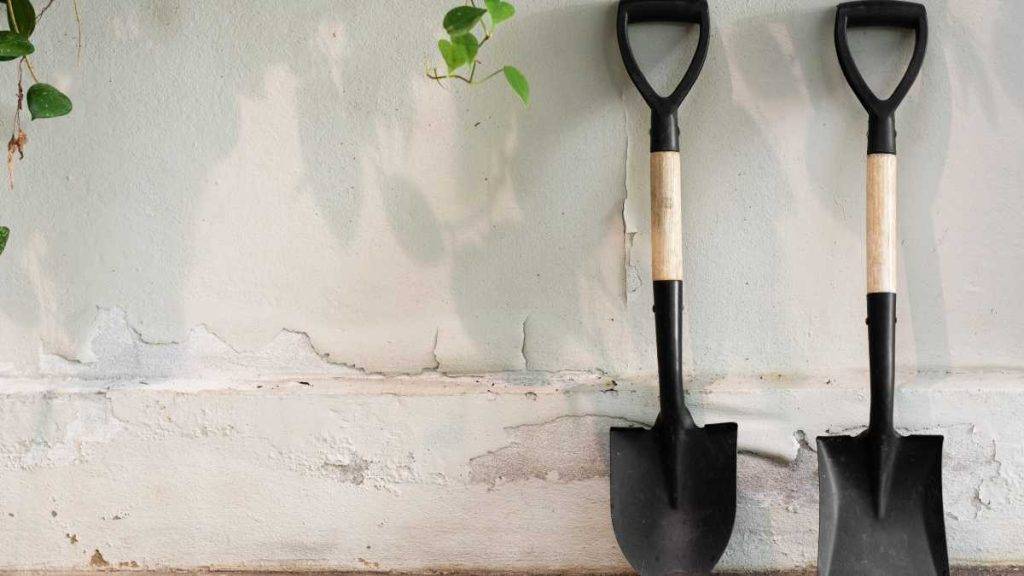
- Long-handled pruner: A long-handled pruner is perfect for trimming back branches that are out of reach. Look for a pruner with a comfortable grip and a sharp blade.
- Hoe: A hoe is great for breaking up soil, removing weeds, and shaping beds. Look for a hoe with a comfortable grip and a sharp blade.
- Cultivator: A cultivator is perfect for loosening soil and removing weeds. Look for a cultivator with a comfortable grip and sharp tines.
Protective Gear
Protective gear is essential for seniors who want to garden safely. Here are some protective gear items that can help keep you safe while you work:
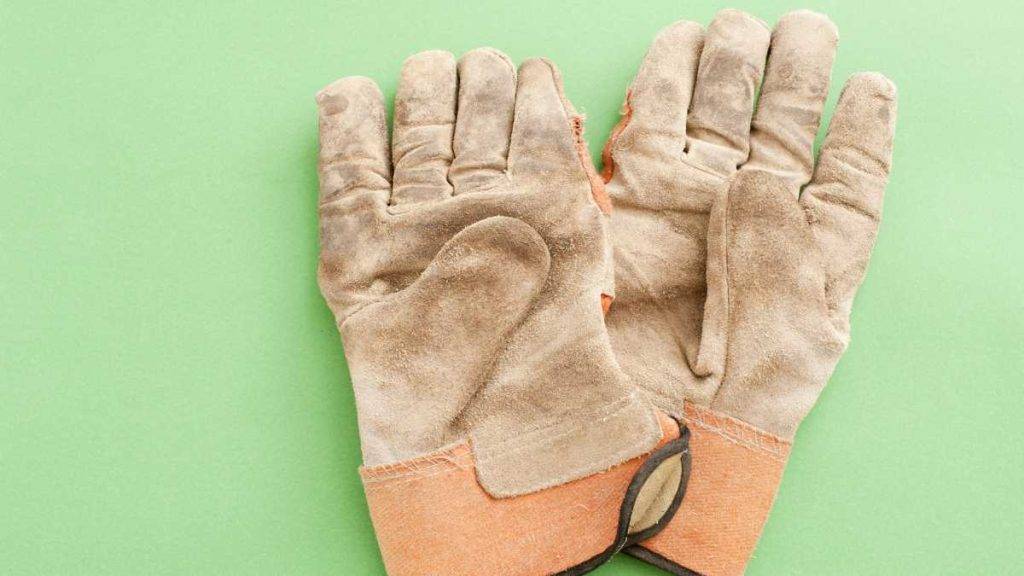
- Gardening gloves: Gardening gloves can protect your hands from cuts, blisters, and thorns. Look for gloves that fit well and are made from a durable material.
- Sun hat: A sun hat can protect your face and neck from the sun’s harmful rays. Look for a hat with a wide brim for maximum protection.
- Knee pads: Knee pads can protect your knees while you work in your garden. Look for knee pads with a comfortable, cushioned surface.
Gardening can be a fun and rewarding activity for seniors, and with the right tools, it can be easier and more comfortable. By investing in some essential gardening tools and protective gear, you can enjoy your garden for years to come.
Ergonomically Designed Tools
When it comes to gardening, using the right tools can make all the difference in the world. This is especially true for seniors who may have difficulty gripping or using traditional gardening tools. That’s where ergonomically designed gardening tools come in.
Ergonomic gardening tools are designed with the elderly in mind, making it easy and comfortable to garden without straining your muscles and joints too much. These tools are designed to reduce hand and wrist stress, making it easier for seniors to garden for longer periods of time.
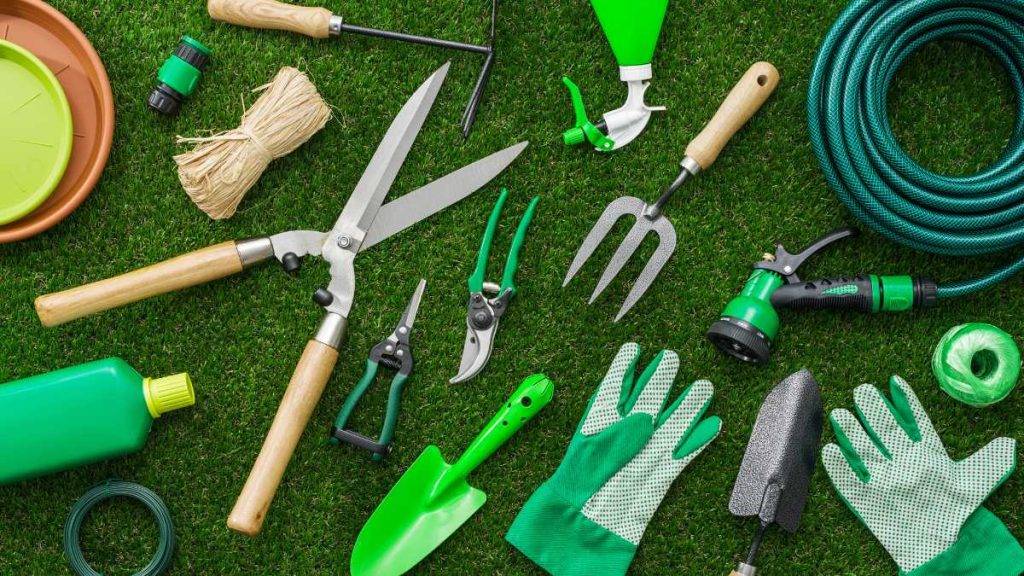
One great example of an ergonomically designed gardening tool is the Radius Garden 100 Ergonomic Aluminum Hand Trowel. This ultra-light all-purpose hand trowel is ergonomically designed with a natural grip to reduce hand and wrist stress. It has a polished aluminum/magnesium blade, which is both light and strong, and cuts through the soil easily.
In addition to being ergonomically designed, many gardening tools for seniors also feature brightly colored handles. This makes them easier to spot in the garden and reduces the risk of losing them.
Overall, when it comes to gardening tools for seniors, ergonomics is key. By using tools that are designed with the elderly in mind, seniors can enjoy gardening without putting too much strain on their bodies.
Assistive Devices for Gardening
When it comes to gardening, age should not be a barrier. However, seniors may face difficulties with mobility, balance, and strength, which can make gardening challenging. Luckily, there are assistive devices available that can make gardening easier and more enjoyable for seniors.
One common challenge that seniors face while gardening is the need to kneel or bend down frequently. This can put a strain on the knees and back. A garden kneeler or knee pads can help alleviate this problem. A garden kneeler is a padded bench that can be flipped over to become a kneeler. Knee pads are also available that can be worn over clothes to provide cushioning and support.
Another challenge faced by seniors is the need to carry heavy tools and equipment around the garden. A trolley can be a useful tool to transport heavy items such as soil bags, pots, and tools. A rolling garden scooter can also be a great option for seniors who have difficulty standing or walking for extended periods. The scooter can be used to move around the garden and can also serve as a comfortable seat.
In conclusion, assistive devices can make gardening more accessible and enjoyable for seniors. Garden kneelers, knee pads, trolleys, and rolling garden scooters are just a few examples of the many devices available that can make gardening easier and more comfortable. With the help of these devices, seniors can continue to enjoy the benefits of gardening while staying safe and comfortable.
Gardening Tools for Different Tasks
When it comes to gardening, there are a variety of tasks that need to be done, and each task requires a specific tool. Here are some of the most common gardening tasks and the tools that are best suited for them:
Weeding
Weeding is an essential task in gardening, and it’s important to have the right tools to make the job easier. A hand weeder is a great tool for removing weeds from your garden. It’s small and easy to maneuver, and it allows you to get to the root of the weed without damaging the surrounding plants.
Digging
Digging is necessary when you want to plant new flowers or vegetables in your garden. A trowel is a great tool for digging small holes, while a garden fork is better for digging larger holes or loosening soil. When choosing a digging tool, make sure it’s comfortable to hold and easy to use.
Pruning
Pruning is important for maintaining the health and appearance of your plants. Pruners or pruning shears are great tools for cutting back branches and stems. They come in various sizes, so choose one that’s appropriate for the size of the branches you’ll be cutting.
Thermal Weeders
Thermal weeders are an excellent tool for getting rid of weeds without using chemicals. They use heat to kill the weeds, making them an eco-friendly option. They’re also easy to use and can save you a lot of time and effort.
In conclusion, having the right tools for gardening tasks is essential for maintaining a healthy and beautiful garden. Whether you’re weeding, digging, pruning, or using thermal weeders, make sure you choose a tool that’s comfortable to hold and easy to use.
Raised Beds and Elevated Gardening
When it comes to gardening as an elderly person, raised beds and elevated gardening can be a game-changer. These types of gardening setups are designed to be more accessible and easier on the body, allowing us to continue enjoying our beloved hobby without causing strain or discomfort.
Raised beds are essentially garden beds that are elevated off the ground, usually by a few feet. They can be made out of a variety of materials, such as wood, metal, or plastic, and come in many different shapes and sizes. One of the main benefits of raised beds is that they can be customized to fit our specific needs. For example, if bending down is difficult for us, we can choose a taller bed that requires less bending.
Another benefit of raised beds is that they are easier to maintain. Because they are elevated off the ground, we don’t have to worry about weeds or pests as much as we would with a traditional garden bed. We can also control the soil quality more easily, which can lead to healthier and more productive plants.
Elevated gardening is another option that can be especially helpful for those with mobility issues. This type of gardening involves using containers or planters that are raised off the ground, often on legs or a stand. Like raised beds, elevated gardening allows us to avoid bending down and can be customized to fit our specific needs. It also makes it easier to move our plants around if needed, such as if we want to bring them inside during the colder months.
Overall, raised beds and elevated gardening can be a great solution for elderly gardeners who want to continue enjoying their hobby without causing strain or discomfort. By choosing the right setup for our needs, we can create a garden that is both beautiful and functional.
Maintaining Gardening Tools
Maintaining gardening tools is crucial to ensure their longevity, effectiveness, and safety. Proper maintenance can also save you money in the long run by avoiding costly replacements. Here are some tips on how to maintain your gardening tools:
- Clean your tools after each use: Dirt, debris, and moisture can cause rust, corrosion, and dullness in your tools. Use a wire brush, sandpaper, or steel wool to remove any dirt or rust from the metal parts. You can also use a disinfectant solution to sanitize your tools and prevent the spread of diseases between plants. Dry your tools thoroughly before storing them.
- Sharpen your cutting tools: Dull blades can damage plants, cause fatigue, and increase the risk of accidents. Use a sharpening stone or a file to sharpen your pruning shears, loppers, and hedge trimmers. Follow the manufacturer’s instructions for the correct angle and direction of sharpening. Test the sharpness by cutting a piece of paper or a twig. If the blade slides instead of cutting, it needs more sharpening.
- Oil your tools: Lubricating your tools can prevent rust, reduce friction, and extend their lifespan. Use a light oil such as mineral oil, vegetable oil, or WD-40 to coat the metal parts of your tools. Avoid using heavy oils such as motor oil or grease, as they can attract dirt and clog the mechanisms.
- Store your tools properly: Storing your tools in a dry, cool, and ventilated place can prevent rust, corrosion, and damage. Hang your tools on a pegboard, a wall rack, or a tool shed. Keep them away from direct sunlight, moisture, and heat sources. Use a tool organizer or a toolbox to keep your tools organized and protected.
- Replace worn or damaged parts: Over time, your tools may need replacement of some parts such as blades, handles, or springs. Check your tools regularly for any signs of wear or damage, such as cracks, bends, or chips. Replace the parts with the same brand and model as your tool, or consult a professional for advice.
By following these simple tips, we can ensure that our gardening tools are in top condition and ready to help us enjoy our gardening activities for years to come.
Health Benefits of Gardening for Seniors
Gardening can provide numerous health benefits for seniors. Not only is it a great way to get some fresh air and sunshine, but it can also be a rewarding hobby that brings joy and a sense of accomplishment. Here are some of the health benefits that gardening can offer:
- Improves wellbeing: Gardening is a great stress reliever and can help improve overall mood and wellbeing. Being surrounded by nature and engaging in a relaxing activity can have a positive impact on mental health.
- Reduces back pain: Gardening can help improve core strength and flexibility, which can reduce the risk of back pain. However, it is important to use proper body mechanics and tools to avoid injury.
- Promotes healthy body weight: Gardening can be a form of physical activity, which can help promote a healthy body weight. It can also provide an opportunity to grow and eat fresh fruits and vegetables, which can be a part of a healthy diet.
- Provides a rewarding hobby: Gardening can be a fulfilling hobby that provides a sense of purpose and accomplishment. It can also provide an opportunity to connect with others who share a similar interest.
Overall, gardening can be a great way for seniors to stay active and engaged in a meaningful activity. It can provide numerous physical and mental health benefits, and can be a rewarding way to spend time outdoors.
